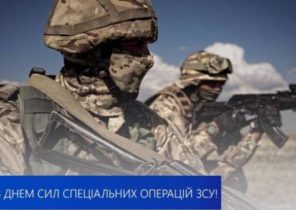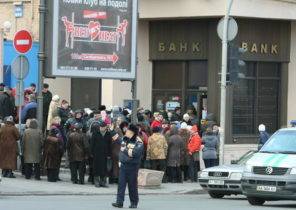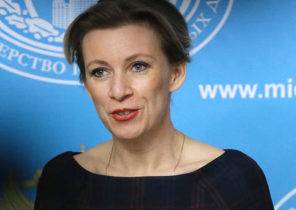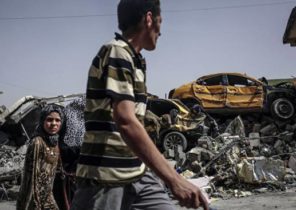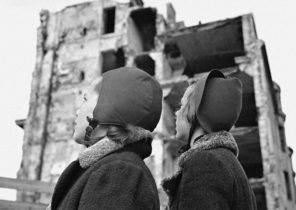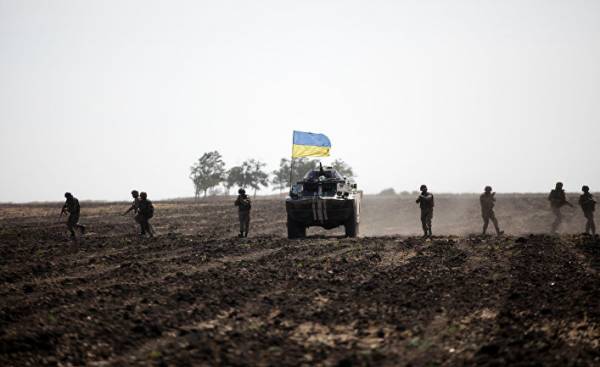
“Since the war began three years have passed, and the situation in the East of Ukraine is consistently poor,” says Serhiy Zhadan in an interview with Dagsavisen.
He is one of the most famous writers of Ukraine, author of the recently published book “Anarchy in the Ukraine”. If you believe the publisher is the first Ukrainian novel, translated to Norwegian.
“A region about which I write in “Anarchy” — the Donbass in the East of the country was the region where are the most active hostilities. Now the situation there is very different from the one I describe in the book,” he says.
Post-revolutionary journey
“Anarchy in the Ukraine” — memories of childhood, is framed as a kind of travelogue. The main character goes to the East of Ukraine, where he grew up, in an effort to study the history of anarchy in the region. The text is full of free associations, different experiences of childhood and adolescence, as contrasted with what the same region appears before the main character now.
“The book is divided into two parts: the main character describes the journey in 2005, when it was still not much time after the “orange” revolution. The second part is a record of my journals spring 2014, immediately after the war began. Both parts are devoted to post-revolutionary periods,” says Zhadan.
Military language
“Orange revolution” — a peaceful demonstration against the rigged results of the presidential elections, which had large political implications. The war between Russia-backed separatists and the Ukrainian authorities began in 2014 and is still ongoing.
“Changed the language. Military words penetrated everywhere. The emotional nuances in the language have changed. Words that were previously perceived as ironic, now spoken in all seriousness. When suddenly there are foreign soldiers, people understand that freedom and homeland — what they value in fact,” says Zhadan.
History of anarchy
He talks about the history of anarchy in Ukraine, which also explores in the novel. The fact that Ukraine is one of the few countries in the world where anarchy existed in reality. It happened in 1918-1920 during the Polish-Russian war, when one side was Soviet Russia and Soviet Ukraine, and on the other of the Second Polish Republic and the Ukrainian people’s Republic.
“The anarchists had a significant impact on the war, but they lost, and Ukraine was subordinated to the Soviet Union. But the myth of the heroism of the anarchists in my country is very tenacious. Today in Ukraine, which seeks its own historic heroes, the names of some anarchists become relevant again. The commander of the anarchist Nestor Makhno (1888-1934) was a very picturesque figure, attracting many, while in Ukraine, he is now a controversial figure,” says Zhadan.
Nostalgia for childhood
The East of Ukraine, about which he writes, has never been a cultural or political center of the country. “Time seems a little off. And not everything made a clean break with the Soviet past. When he published a book,, someone accused her of being too strong nostalgia for the Soviet Union. I believe it depicts nostalgia for the people with whom you grew up, for all those who for various reasons have disappeared from your life. Regardless of what political system is now dominant. Those who cling to the Soviet nostalgia are still in the minority,” says Zhadan.
Putin presses
The problem of Ukraine is that there is no attractive alternative, says the writer.
“There is a choice between a Pro-Soviet policy, a La Putin’s totalitarianism, or more liberal, Pro-European policy, which also means an obvious problem, especially in a country where such traditions no.”
Zhadan believes, however, that those who think that Putin pulls Ukraine closer to itself, wrong.
“It may sound strange, but Russia really did everything he could to ensure that Ukraine chose Europe. The occupation of the Crimean Peninsula and sending troops in Donbass in the East — a way to show their strength, trying to push Ukraine to the West. The only problem is that it remains unclear how successful was this strategy,” says Zhadan in conclusion.

